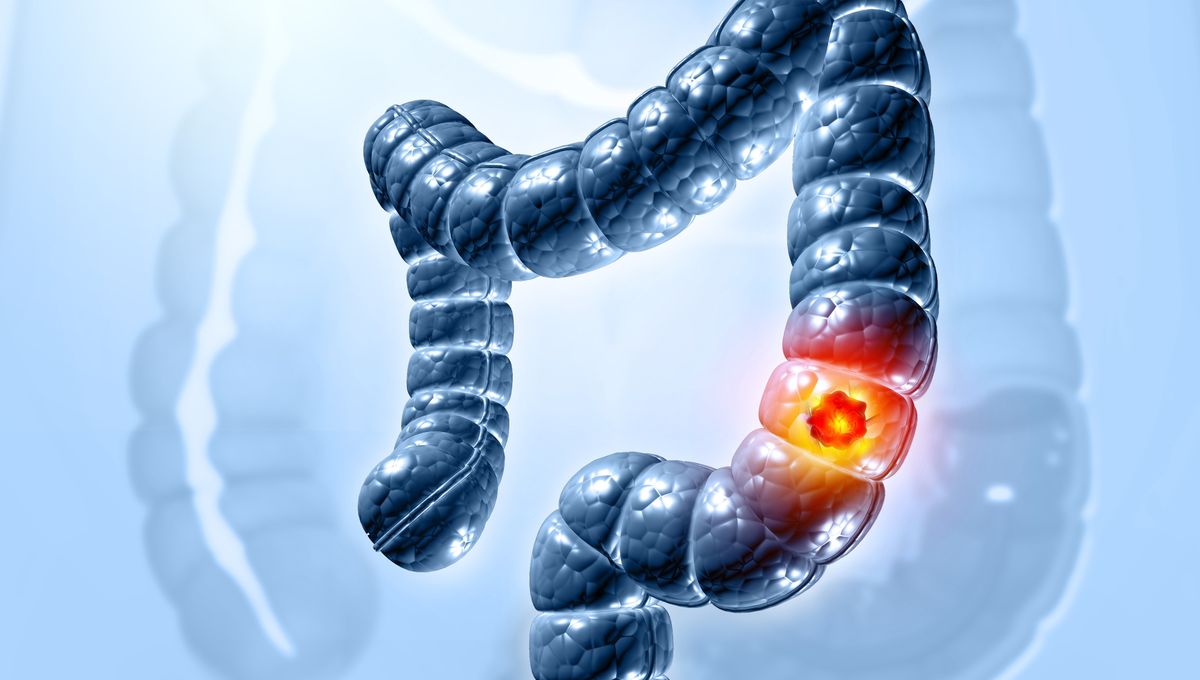
Colorectal cancer is on the rise among people under 50 in at least 27 countries. The number of cases has doubled every decade for the last 20 years and could become the leading cause of cancer-related death among young adults by 2030. Researchers have found a potentially crucial mechanism that could explain the increase: a toxin produced by a bacterium.
The toxin is known as colibactin. It is produced by certain strains of Escherichia coli that reside in the colon and rectum, and it has the capability of altering DNA. Exposure to colibactin during early childhood imprints specific genetic changes that may increase the risk of colorectal cancer before the age of 50.
“Not every environmental factor or behavior we study leaves a mark on our genome,” senior author Professor Ludmil Alexandrov, from the University of California San Diego, said in a statement. “But we’ve found that colibactin is one of those that can. In this case, its genetic imprint appears to be strongly associated with colorectal cancers in young adults.”
“If someone acquires one of these driver mutations by the time they’re 10 years old,” Alexandrov explained, “they could be decades ahead of schedule for developing colorectal cancer, getting it at age 40 instead of 60.”
The team studied whether and how mutational processes could contribute to the known geographic and age-related differences in colorectal cancer onset. They examined 981 colorectal cancer genomes from 11 countries, and while they were not going to focus on colibactin mutation, the evidence popped out.
The specific mutations created by this toxin were undeniable, and those mutations were 3.3 times more common in early-onset cases (specifically under 40) than above 70. The mutations were also more common in the countries with higher early-onset cases.
“When we started this project, we weren’t planning to focus on early-onset colorectal cancer,” said study co-first author Marcos Díaz-Gay, a former postdoctoral researcher in Alexandrov’s lab. “Our original goal was to examine global patterns of colorectal cancer to understand why some countries have much higher rates than others. But as we dug into the data, one of the most interesting and striking findings was how frequently colibactin-related mutations appeared in the early-onset cases.”
The research was funded by grants from the United Kingdom from Cancer Research UK, as well as funding from the US National Institutes of Health (NIH). The Trump administration, the Health Secretary Robert F. Kennedy Jr, and Elon Musk have executed cuts to many programs that could endanger the American people, as well as jailing foreign-born scientists working in the US. This research might not be able to follow up on the many open questions without funding.
And the open questions are crucial to turning this trend around. How and when are children exposed to this toxin? Is it an environmental factor that leads to the production of colibactin, or is it diet or lifestyle? Could people find out if they have been exposed or are at risk?
“If NIH funding cuts impact our ability to do this work, that will be, in my opinion, a substantial hit to cancer research not just in the US, but globally,” said Alexandrov. “Our funding has allowed us to collaborate with cancer researchers around the world, collecting and analyzing large datasets from patient samples in multiple countries. That kind of scale is what makes discoveries like this possible.”
A paper describing the results is published in the journal Nature.
Source Link: Childhood Exposure To A Specific Toxin May Lead To Colorectal Cancer In Younger People